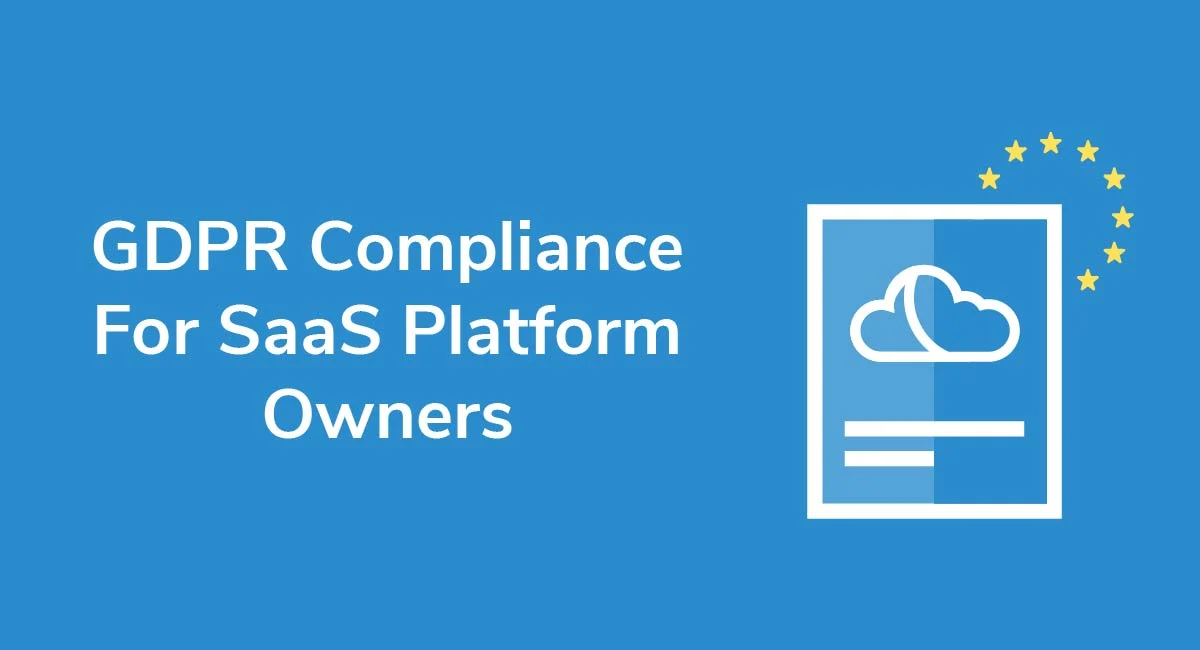In the bustling realm of Software as a Service (SaaS), data privacy and protection are more critical than ever. The rise of digital services has brought with it a wave of regulations designed to safeguard user information, with the General Data Protection Regulation (GDPR) standing at the forefront. For SaaS platform owners, navigating GDPR compliance can be complex, but understanding and implementing these regulations is essential for maintaining trust and avoiding hefty fines. This guide will unpack what GDPR means for SaaS platforms, explore key compliance requirements, and offer practical steps for ensuring your platform adheres to these crucial data protection standards.
What is GDPR?
The General Data Protection Regulation (GDPR) is a comprehensive data protection law enacted by the European Union (EU) to enhance individuals’ control over their personal data. Implemented on May 25, 2018, GDPR sets strict guidelines for the collection, storage, and processing of personal data of EU citizens. Despite its origins in the EU, GDPR’s reach extends globally, affecting any organization that processes the data of EU residents, regardless of where the organization is based.
Why GDPR Matters for SaaS Platforms
For SaaS platforms, which often handle vast amounts of personal data on behalf of their clients, GDPR compliance is not just a legal obligation but a fundamental aspect of trust and reputation. SaaS providers must ensure that they comply with GDPR’s stringent data protection standards to avoid potential legal repercussions and to maintain the confidence of their users and clients.
Who Needs to Comply with GDPR?
Applicability to SaaS Providers
GDPR Compliance for SaaS Platform Owners applies to any entity that processes personal data of individuals residing in the EU. For SaaS platform owners, this means that if your service collects, stores, or processes data related to EU residents, you must comply with GDPR requirements. This is true whether your SaaS platform is based in the EU or outside of it, provided you target or have users from the EU.
Key Roles Under GDPR
- Data Controller: The entity that determines the purposes and means of processing personal data. If you are a SaaS platform owner, you are typically the data controller.
- Data Processor: The entity that processes personal data on behalf of the data controller. If you handle data on behalf of another organization, you may also be a data processor.
Understanding your role is crucial as it determines your specific obligations under GDPR.
Key GDPR Requirements for SaaS Platforms
Data Protection by Design and by Default
GDPR mandates that data protection should be integrated into the design of your SaaS platform. This means implementing measures that ensure data is collected only for necessary purposes, processed securely, and retained only as long as needed. Privacy considerations should be part of your development lifecycle, from initial design to deployment and maintenance.
Consent and Data Collection
Obtaining explicit consent from users before collecting their data is a cornerstone of GDPR. Ensure that your SaaS platform includes clear and transparent consent mechanisms. Users should be informed about what data is being collected, for what purposes, and how it will be used. Additionally, provide users with the option to withdraw their consent at any time.
Data Subject Rights
GDPR grants several rights to individuals regarding their personal data. As a SaaS provider, you must facilitate and honor these rights, including:
- Right to Access: Users can request access to their personal data and obtain a copy of it.
- Right to Rectification: Users can request corrections to inaccurate or incomplete data.
- Right to Erasure (Right to be Forgotten): Users can request deletion of their data under certain conditions.
- Right to Restrict Processing: Users can limit how their data is processed.
- Right to Data Portability: Users can request their data in a format that allows them to transfer it to another service.
- Right to Object: Users can object to the processing of their data for specific purposes.
Ensure your SaaS platform has mechanisms in place to handle these requests efficiently and within the GDPR-mandated timeframes.
Data Breach Notification
In the event of a data breach, GDPR requires that you notify the relevant authorities within 72 hours of becoming aware of the breach. You must also inform affected individuals if the breach poses a high risk to their rights and freedoms. Having a robust data breach response plan is essential for meeting these requirements.
Data Protection Impact Assessments (DPIAs)
A Data Protection Impact Assessment (DPIA) is required when processing operations are likely to result in a high risk to individuals’ privacy. Conducting DPIAs helps identify and mitigate risks associated with data processing activities. For SaaS platforms, this may include assessing risks related to new features, data processing activities, or significant changes to existing operations.
Record-Keeping and Documentation
GDPR mandates that you maintain detailed records of your data processing activities. This includes documenting the types of data processed, the purposes of processing, data retention periods, and security measures in place. Proper documentation not only helps demonstrate compliance but also facilitates audits and reviews.
Implementing GDPR Compliance in Your SaaS Platform
Integrating Privacy into Your Development Lifecycle
- Design with Privacy in Mind: Incorporate privacy features from the outset of your platform’s design. This includes secure data storage, encrypted communication, and minimizing data collection.
- Conduct Regular Audits: Periodically review your data processing activities and privacy practices to ensure ongoing compliance with GDPR.
- Train Your Team: Educate your employees about GDPR requirements and best practices for data protection. Regular training ensures that everyone involved in handling personal data understands their responsibilities.
Tools and Technologies for Compliance
- Data Encryption: Use encryption to protect personal data both at rest and in transit. This helps safeguard data from unauthorized access and breaches.
- Access Controls: Implement strict access controls to ensure that only authorized personnel can access personal data. Use role-based access controls and authentication mechanisms.
- Data Anonymization: Where possible, anonymize personal data to reduce privacy risks. Anonymized data is not subject to the same regulatory requirements as personally identifiable information (PII).
Partnering with GDPR-Compliant Vendors
If your SaaS platform relies on third-party vendors for services such as cloud hosting, payment processing, or analytics, ensure that these vendors are also GDPR-compliant. Establish clear data processing agreements (DPAs) with these vendors to outline their responsibilities and ensure they adhere to GDPR requirements.
Common Challenges and How to Overcome Them
Navigating Cross-Border Data Transfers
GDPR imposes strict rules on transferring personal data outside the EU. Ensure that any data transfers to non-EU countries are compliant with GDPR’s provisions for international data transfers. This may involve using standard contractual clauses or ensuring that the recipient country has adequate data protection measures in place.
Balancing Compliance with User Experience
While GDPR compliance is crucial, it should not come at the expense of user experience. Strive to balance data protection measures with usability, ensuring that privacy features do not hinder the functionality or ease of use of your SaaS platform.
Staying Updated with Regulatory Changes
Data protection regulations can evolve, and staying updated with changes is essential for maintaining compliance. Regularly review GDPR Compliance for SaaS Platform Owners guidelines and stay informed about any updates or amendments that may impact your SaaS platform.
Conclusion
GDPR compliance is a critical aspect of managing a SaaS platform in today’s data-driven world. By understanding GDPR requirements and implementing robust data protection measures, SaaS platform owners can ensure they meet legal obligations, protect user privacy, and build trust with their clients. From integrating privacy by design to managing data subject rights and conducting regular audits, adhering to GDPR is not only a legal necessity but also a vital component of delivering a secure and trustworthy service. Embrace GDPR as an opportunity to enhance your platform’s security and user confidence, paving the way for a successful and compliant SaaS operation.







